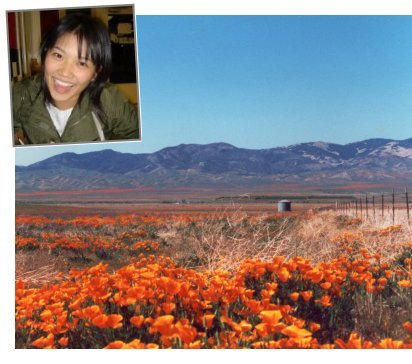

|
| email me ISL media page | home | |

| ||
|
American Mythology: The Road Trip  687 titles prove the staying power of the American Road Myth
687 titles prove the staying power of the American Road Myth
One way to measure the appeal of the great American road novel, says Berkeley, Calif. author Charles Hugh Smith, is to count the titles in the genre--687, according to the online bookseller allbookstores.com. Smith has tossed his own road story, I-State Lines (April 2006, The Permanent Press), into this very crowded ring with some trepidation. "The mythic nature of the American highway and landscape is the beating heart of all road novels," he says, "and it's tough to add something new to such well-tilled ground." The heavy-hitter of all road novels is the 1957 classic On the Road by Jack Kerouac, a drug and alcohol-fueled bohemian odyssey recounting the semi-autobiographical cross-country exploits of Kerouac and his pal Neal Cassady. "The key to On The Road's status as a cult classic," Smith says, "is the way it expresses deep-down American myths in a spontaneous voice which riffed so adeptly off the cool, improvised jazz of the era." Smith identifies four iconic American myths in Kerouac's classic. "The two characters are first and foremost Rebels who break free of the stifling conformity of the 50s. Once free, they also break plenty of rules, landing them both the highly-coveted role of Outlaw. Their wandering makes them Searchers, embodying the restless American drive for adventure new horizons. Lastly, they are Explorers of a new bohemian way of living, of a truth not readily visible in day-to-day living." The irony of the book's cult status, Smith says, is that the antics and freedoms so warmly glorified in the book have a darker, self-destructive essence which played out in Kerouac's own life. "Being in a car going 110 miles an hour with a drunk behind the wheel is exhilarating for about three seconds," Smith says. "The false drama of that sort of rebellion gets old fast." Kerouac, a famously erratic, irresponsible parent, died young, a full-blown alcoholic. "Part of the book's appeal is that it plays to the fantasy of transformation via drugs, excess, abandonment of traditional values, and the open road," Smith observes. "From a more grounded point of view, the book is fundamentally the glorified antics of two privileged white guys wallowing in a rather self-absorbed, endless adolescence." American life was simpler fifty years ago, Smith says, and as a result it was simpler to rebel--but only if you were Caucasian. "The carefree antics of the characters in On the Road did not actually threaten the status quo," Smith says. "Try to imagine a pair of young African-American or Chinese-American guys stealing cars, all in the spirit of rebellious fun. That flavor of rebellion was and continues to be a luxury." The status quo bohemians sought to escape now appears quaintly safe and innocent, says Smith. "Violence of the sort which is common today between young people was rare fifty years ago," he notes. "The conformist haircuts and clothing of the 50s are long gone. Now you pick from any number of tribal identities; there is no monolithic status quo to rebel against." What Smith hopes his book I-State Lines brings to the American Road novel is a radical updating of the myths developed by previous generation's classics like On The Road. "My characters are multi-ethnic, just like my own family," Smith says. "The cast of characters includes African-Americans and Asian-Americans, the sort of diversity I have experienced in my life and which reflects the great potential of modern America." The open road beckons to Daz and Alex, I-State Lines's hero/rebels, but not as an avenue for childish excesses. "The critical question for young people today isn't breaking free of a monotone status quo," Smith says, "but their own identity and moral grounding in such a fluid, anything-goes culture." Where the anti-heroes in On The Road avoided work or indeed, anything smacking of responsibility, Daz and Alex take jobs, working their way across the country, trading labor to get their aging Dodge Lancer fixed. Military veterans, nonexistent in On The Road, play an essential role in I-State Lines. Smith reckons his refusal to glorify self-absorption, dysfunction and excess as modes of rebellion severely limits the book's appeal. "My friends with teenagers say that their kids' friends aren't at all like Alex and Daz," he says. "But the real rebellion is always to find your own moral core and to think for yourself. In that sense, I think young people will find much to admire in Daz and Alex." (736 words) I-State Lines publication date: April 2006 Publisher: THE PERMANENT PRESS 4170 Noyac Road Sag Harbor, New York, 11963 phone: 631-725-1101 / fax: 631-725-8215 e-mail: info@thepermanentpress.com web site: www.thepermanentpress.com All content and coding copyright © 2006 by Charles Hugh Smith, all rights reserved. The right to reprint or adapt this feature story is expressly granted to professional journalists working in any media or language. |
||
| email me ISL media page | home |